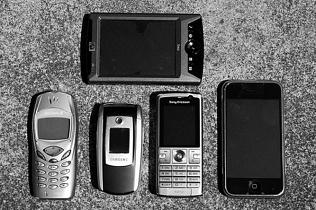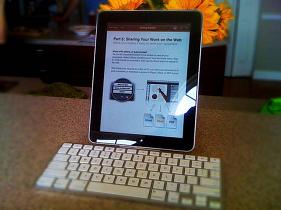How Mobiles Could Replace Computers and Consoles
Even those of us who are old enough to have experienced the first generations of mobile devices often forget just how far they have come. From the analog briefcase-sized monstrosities from which they originated, into the monochrome text displays, and finally into the age of touch-screen based mini-computers, these exist as a technology which has undergone considerable evolution. As we continuously shift into an increasingly digital world, we take a look back at just how far these mobile devices come, and how they might hold a place in the world of tomorrow as replacements for many traditional computing devices.
Digital Multitools
It might be difficult for our younger readers to understand, but mobile phones have already made enormous strides in replacing a whole host of other devices and tools. We could write books on this topic alone, but instead, let's look at a few of the big ones.
- Cameras – still obviously exist, but mobile technology makes them far more available than ever before
- Radio – dedicated devices for radio are now, in essence, obsolete
- Music Players – even modern MP3 players are now being phased out, as they can't do anything that mobile phones can't
- Calculators – simple and always handy, and with enormous functionality
- GPS – for both finding your location and mapping, eliminating the old clunky paper-map system, with added voice guidance
- Flash Lights – again, still obviously exist, yet mobile phones are always on hand which adds a lot to convenience
- Portable Video Player – eliminating the need for expensive separate viewing devices
Seeing as the stage is set, let's take a look at what the future could hold with the inevitability of more powerful mobile devices.
Gaming and Computing
Since mobile phones are, in effect, small computers, it makes sense that they can do almost everything a computer or console can do. The computing aspect has risen to the forefront with the advent and popularisation of smartphones, offering many of the same programs and systems which we use in our personal and professional lives. Likewise, they have made considerable strides in gaming, into what is now a force at least equal to that of traditional gaming handhelds.
Part of this ties into their involvement with the evolving mobile game market, which has gone from the simplicity of snake to offering some of the best-loved and highest production value games of any system. From casino games with bonuses of up to $1000 up for grabs to the AAA adaptions of the current biggest game in the world, Fortnite, the infrastructure here is right at the cutting edge.
With the docked gaming device known as the Nintendo Switch becoming extremely popular, and the computing power of these devices now strong enough to handle almost all standard tasks, the question becomes when will our mobile devices make the jump from dedicated mobile devices to dockable stations? Laptops have already opened the floodgates here, being able to be quickly plugged into stationary screens and control devices to mitigate their limitations, so the next step, logically, is not hard to predict.
Not if but When?
We have little doubt that our mobile phones will eventually reach the promise of science fiction's personal computing devices; the only thing we have to wonder is when this shift will occur. With mobile infrastructure becoming better by the day, and mobile phones becoming an increasingly inseparable part of our personal and working lives, this seems too big an opportunity to pass up. That said, if you think losing your phone is stressful now, just wait until it carries all your work emails.
Comments
There are 0 comments on this post








